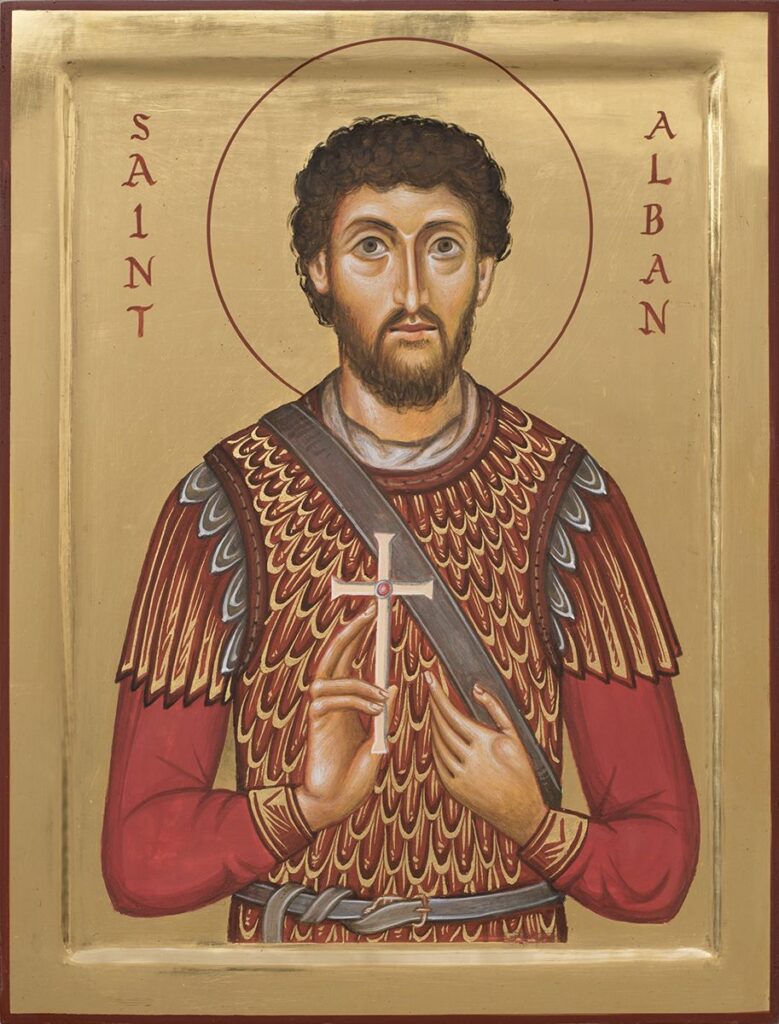St Alban

St. Alban, revered as the first British martyr, is a significant figure in early Christian history. His story is both poignant and inspiring, encapsulating themes of faith, bravery, and the transformative power of conviction. According to tradition, Alban lived during the late 3rd century in Verulamium, present-day St Albans in Hertfordshire, England. At that time, Christians faced persecution under the Roman Emperor Diocletian, who sought to suppress the burgeoning faith.
The narrative of St. Alban’s martyrdom begins when he offered refuge to a Christian priest fleeing from Roman authorities. As Alban sheltered the priest, he was profoundly influenced by his teachings and converted to Christianity. Despite the danger, Alban’s newfound faith compelled him to publicly declare his beliefs. When Roman soldiers arrived to arrest the priest, Alban boldly exchanged clothes with him, taking on the priest’s identity. This act of self-sacrifice led to Alban’s arrest and subsequent trial.
During his trial, Alban’s refusal to recant his Christian beliefs infuriated the authorities. He was condemned to death and executed, reportedly beheaded. His martyrdom is said to have been accompanied by miraculous signs, such as the healing of a blind woman who witnessed his execution. St. Alban’s courage and unwavering commitment to his faith made a profound impact on early Christian communities, inspiring countless others.
St. Alban’s legacy is commemorated annually on June 22nd, and his martyrdom has had a lasting influence on the Christian tradition in Britain. The Abbey of St. Alban stands as a testament to his enduring significance, drawing pilgrims and visitors who honor his memory and reflect on his exemplary faith.
